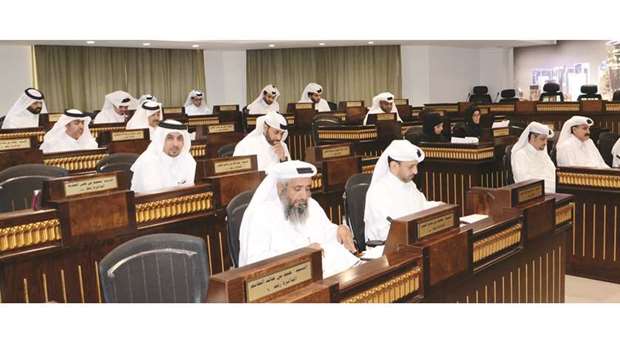The Central Municipal Council (CMC) recommended yesterday that Ministry of Endowments and Islamic Affairs Mosques Management Department should study the possibility of using the waste water from ablution at the mosques to irrigate the plants in the surrounding areas.
The council aims at recycling of the ablution water, which is usually not mixed with sanitary drainage water, to increase the greenery around the various mosques in the country and simultaneously reduce water wastage.
The council hopes that this would be considered particularly during the holy month of Ramadan, as the consumption of water increases in mosques and the use of the ablution water for watering plants would be more beneficial.
During yesterday’s session, the council also discussed a suggestion by vice chairman Hamad bin Lahdan al-Muhannadi regarding the use of some parking lots at some shopping malls for commercial purposes.
He pointed out that it has been recently observed that some shopping centres have reduced the allocated licensed parking lots they have for other commercial purposes such as renting for shops, which violates the granted licenses and the building completion certificates. This would eventually reflect negatively on the traffic in the surrounding areas and the roads leading to such places.
The suggestion was greatly welcomed by all CMC members as a pressing issue that need to be resolved.
They stressed that no modification should be allowed in the designated parking lots of the shopping malls and centres as any shortage of these would result in congested traffic on the road. Besides, the issue involves many other related safety and security concerns as the reduction of parking lots may hamper the smooth access for civil defence and security vehicles.
In the meantime, the council asked the Ministry of Municipality and Environment (MME) to study the possibility of demarcating the official boundaries and jurisdiction of the villages on the outskirts of the country and co-ordinate with the entities concerned to issue a law in this regard. In addition, the MME should study the possibility of allocating government land plots in these areas to establish public projects.
At the same session, the council also reviewed the responses of the MME on its previous recommendations regarding the increase of local agricultural production to achieve self-sufficiency. The MME’s response focused on its various efforts and plans in this connection and how it works through several methods to encourage and support production.

The CMC in session.
